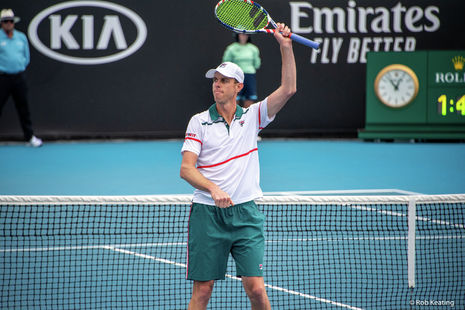The responsibility of sportspeople during a pandemic
As the UK enters its third national lockdown, Damola Odeyemi argues that sportspeople, as role models, should be held to account for their actions.

Professional sportspeople have a vital responsibility to follow COVID guidelines. Their popularity demands it.
Professional sport during the COVID-19 pandemic has now lost its novelty factor. The greater public is beginning to see it in a different light, and it is not all that flattering. The return of sport was a relief to many. It brought with it a sense of normality, of a time before COVID, even if fans could not attend events in person. Sport was brought back to boost public morale – to give people something else to care about, a bit of escapism. As COVID-19 cases and deaths continue to rise daily in the UK, the apparent essential nature of sport has been called into question. The questions being raised are very valid given the recent conduct of a number of prominent sportspeople.
“...these few rule-breaking footballers do not recognise what has been sacrificed for them to continue playing football.”
Over Christmas and the new year, the back pages of tabloid newspapers were littered with photographs of Premier League footballers blatantly breaking COVID regulations, hosting large gatherings and festive parties. Players from clubs in the Women’s Super League have recently also tested positive for COVID-19 after an unauthorised trip to Dubai, resulting in the postponement of 5 games. Coupled with the public sentiment in reaction to a third national lockdown, the complaints about the way footballers behave have only increased in volume.
The public and politicians alike have expressed their disapproval of a group of privileged professionals breaking COVID regulations and having the audacity to post the evidence on Instagram, to be seen by millions of followers. What makes their actions even more contemptible, is that it gives the impression that these few rule-breaking footballers do not recognise what has been sacrificed for them to continue playing football – the millions of pounds spent on biweekly COVID tests, along with the collective sacrifice of the general public, unable to leave their homes, many losing family members and in financial hardship.
There have been incidents of misconduct by professionals in a range of sports, such as tennis players playing while having COVID symptoms or NBA stars hosting illegal gatherings. However, football has come under the spotlight because players do not seem to be held to the high standards that are expected. The NBA, along with the governing bodies of tennis and rugby give out harsh fines and bans for COVID-related transgressions, while the FA, EFL and Premier League argue over who should even be giving them out, and act much too late when they do.
“...sportspeople are more than just athletes, they have huge swathes of influence.”
To make matters worse, the on-pitch conduct of football players has also come under scrutiny, as viewers are switching on their televisions to find players hugging and exchanging shirts at the end of a match, or piling on top of each other after a winning goal. This is a clear indication that the clubs have let their enforcement of the rules go slack. The people who need to hold them accountable are their employers. It is in the interest of the clubs and governing bodies to ensure that players prioritise their sporting responsibility, by punishing fairly and providing suitable deterrents.
Conversely, the responsibility that sportspeople have to the public might not always be their priority, no matter the strictness of the governing body. The ATP, the organisation overseeing men’s tennis, spent months deliberating over an incident involving the American, Sam Querrey, in which he breached COVID regulations in Russia. In October of last year, the world No. 51 tested positive along with his wife and eight-month-old baby son, before the St Petersburg Open. Soon after, he fled the country by private jet, finishing the rest of his isolation period in the UK. The ATP was initially planning to sanction him with a fine of up to $100,000 and a lengthy suspension for a “serious breach of protocol”.
“Sportspeople have a vital responsibility to set an example because they have a significant amount of power in society.”
However, it seems there was more to his situation than met the eye. It turned out that the hotel he was staying at refused to allow him and his family to isolate there. Furthermore, there was the possibility of being taken to a hospital where he might be separated from his family. The unpredictability of his situation drove him to disobey regulations. Querrey received a significant amount of backlash from tennis media about the inappropriate nature of his actions and the kind of example he was setting. In an interview with Sports Illustrated he defended himself, stating:
“I felt, as a father and a husband, there’s a human element to this, and I had to do what I feel like is right… I wasn’t willing to let our family go to a hospital for a minimum of two weeks where we were at.”
He might have been aware of his responsibility as a sportsperson to follow COVID guidelines but chose to prioritise the safety of his family, opting to breach protocol. With this information made public, he received a suspended fine of $20,000, and was allowed to continue playing.
Querrey is certainly not the first sportsperson to have faced such a predicament. His actions can be seen as forgivable given his situation, especially when compared to the recklessness of many footballers and NBA players, but that does not exonerate him. He took drastic action to avoid a 2-week separation from his wife and son. However, considering that there are thousands of people all around the world who haven’t seen family members in almost a year, and are sticking to the guidelines, did he really have to cross international borders just for peace of mind?
All this calls into question why we should expect sportspeople to set an example in the first place. They’re human after all, right? Yes, but few of us have the money or freedom that they do. More importantly sportspeople are more than just athletes, they have huge swathes of influence. These are celebrities with Twitter and Instagram followings stretching into the millions. As individuals who are broadcast all over the world, they are subject to greater public scrutiny.
Sportspeople have a vital responsibility to set an example because they have a significant amount of power in society. That responsibility becomes even greater as the COVID situation deteriorates, and more questions are asked about the place of sport in our struggling society. Sportspeople now have to prove themselves to the public they perform for.
 News / Caius mourns its tree-mendous loss23 December 2025
News / Caius mourns its tree-mendous loss23 December 2025 Comment / Yes, I’m brown – but I have more important things to say22 December 2025
Comment / Yes, I’m brown – but I have more important things to say22 December 2025 News / Clare Hall spent over £500k opposing busway 24 December 2025
News / Clare Hall spent over £500k opposing busway 24 December 2025 Interviews / Politics, your own way: Tilly Middlehurst on speaking out21 December 2025
Interviews / Politics, your own way: Tilly Middlehurst on speaking out21 December 2025 News / King appoints Peterhouse chaplain to Westminster Abbey22 December 2025
News / King appoints Peterhouse chaplain to Westminster Abbey22 December 2025









